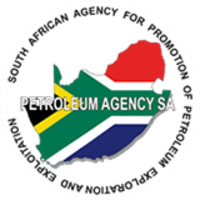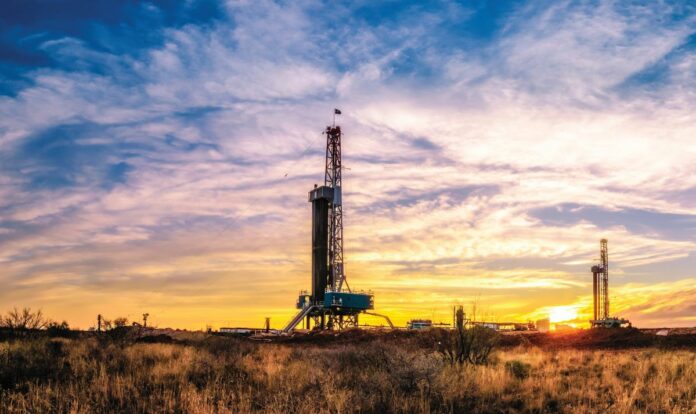The decision by TotalEnergies to submit a production plan for their recent discoveries off the coast of Mossel Bay coincided with the beginning of commercial operations of Tetra4’s natural gas project in the north-eastern Free State. These two events prove that investors can see that the South African resources equation adds up to something worthwhile.
 These are exciting times for exploration in South Africa. Both of these projects came about through the licensing authority of Petroleum Agency South Africa (PASA), the agency of national government which reports to the Minister of Mineral Resources and Energy (DMRE). PASA regulates and monitors exploration and production activities and is the custodian of the national exploration and production database for petroleum. Its role was statutorily endorsed in June 2004 in terms of the Mineral and Petroleum Resources Development Act of 2002.
These are exciting times for exploration in South Africa. Both of these projects came about through the licensing authority of Petroleum Agency South Africa (PASA), the agency of national government which reports to the Minister of Mineral Resources and Energy (DMRE). PASA regulates and monitors exploration and production activities and is the custodian of the national exploration and production database for petroleum. Its role was statutorily endorsed in June 2004 in terms of the Mineral and Petroleum Resources Development Act of 2002.
In terms of strategy, the agency actively seeks out technically competent and financially sound clients to whom it markets acreage, while ensuring that all prospecting and mining leases are for the long-term economic benefit of South Africa. As custodian, PASA ensures that companies applying for gas rights are vetted to make sure they are financially qualified and technically capable, as well having a good track record in terms of environmental responsibility. Oil and gas exploration requires enormous capital outlay and can represent a risk to workers, communities and the environment. Applicants are therefore required to prove their capabilities and safety record and must carry insurance for environmental rehabilitation.
As part of a drive to create certainty for investors, a new bill has been introduced to replace old legislation. The Upstream Petroleum Resources Development (UPRD) Bill provides for greater certainty in terms of security of tenure by combining the rights for the exploration, development and production phase under one permit.
The draft bill was first published in June 2021 and discussions with industry stakeholders are ongoing. Organisations such as the South African Oil and Gas Alliance (SAOGA) will be coordinating responses to present to parliament. Objectives of the bill include:
-
- expanding black participation
- promoting local employment and skills development
- creating an enabling environment to accelerate exploration and production of South Africa’s petroleum resources.
Sustainable development: balancing development with environmental protection
South Africa has vast gas and oil resources and exploration and the exploitation of these resources has barely scratched the surface. Having to import oil and gas has a serious impact on the country’s balance of payments.
This makes it more difficult to industrialise the country. For the 2021/22 financial year about 50 applications for exploration and production were received but only about 10% of that number were approved.
This is because of very stringent licensing and environmental regulations which must be followed. As PASA CEO Dr Phindile Masangane explains, “We assure South Africans that the slow pace is because we have to make sure that we have a robust system that incorporates all the aspects of licensing but importantly, that the environmental impact assessment is thoroughly undertaken.”
Despite this, planned seismic surveys were halted after opponents of the process went to court in 2021 and 2022. Proponents of continued exploration argue that the seismic process being followed is no different to that which has been followed in the past, and which is employed all over the world.
Dr Masangane told Bloomberg in August 2022: “As the Petroleum Agency, we acknowledge that South Africa’s upstream oil and gas industry has become litigious.” She noted that local consultation standards are going to be evaluated and improved if necessary. This aspect of the process has been the subject of criticism in the court cases.
Investors are still very interested in the South African proposition, as the TotalEnergies offshore and the Free State project prove. Most offshore project exploration interest tends to come from foreign investors because of the high costs but within South Africa, there is a growing number of local participants. A women and black-owned company, Imbokodo, is making a name for itself as a participant as a shareholder in a number of licensing rounds.
Revised draft regulations related to hydraulic fracking in the gas-rich Karoo region were published by the Department of Forestry, Fisheries and the Environment (DFFE) in July 2022 for public comment. Fracking is a drilling technique that is widely used in other jurisdictions such as the United States, but environmental concerns have been raised. Dr Masangane further told Bloomberg that groundwater and geological studies are being conducted in the biodiversity-rich areas of the Karoo and that once regulations have been finalised, seismic activity will be undertaken to establish which blocks to license.
As part of an attempt to engage in a broader discussion on policy issues, a joint colloquium was held in 2022 on the subject of how to balance South Africa’s energy needs with the country’s climate change commitments. The colloquium, and several online events which prepared for and anticipated the main event, was jointly hosted by the DMRE, the DFFE and PASA.
Dr Masangane is convinced that a balance can be achieved between developing renewables and continuing to exploit the country’s (and the continent’s) oil and gas reserves. She points out that the use of certain fuels for cooking leads to deforestation: “If they were to use gas, whether it is LPG or natural gas for cooking that in itself is decarbonisation because then you arrest the negative impact of deforestation. We must not buy into a false narrative and a false choice. It is possible that we can have a dual strategy.”








